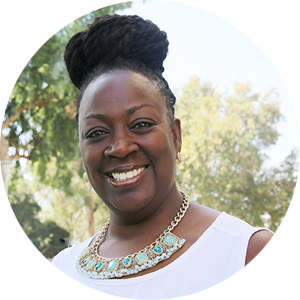Certificate in Trauma and Spiritual Care
Our Certificate in Trauma and Spiritual Care (CTSC) is an opportunity for professional care providers to explore their relationship with and experience of trauma in their lives and work. Utilizing an action-reflection learning process, participants will reflect theologically and critically on the individual and systemic effects and manifestations of trauma, as well as resiliency in the face of trauma. Each course builds upon the last, establishing first a theoretical understanding of trauma, both personal and collective, before diving into different theological approaches to suffering and ways of providing trauma-informed care and encouraging resiliency. Participants will engage in small-group reflection, develop caring rituals, apply concepts in acts of service, and envision ways to bring aspects of Caring Activism into their work.
At the heart of our understanding of Caring Activism is a desire to care for others. In this world poised for healing, we at the Shaw Chaplaincy Institute promote the use of direct caring action to bring about spiritual, physical, and social changes that foster health, healing, and resiliency.
PROGRAM STRUCTURE
-
The certificate is comprised of four courses: Dynamics of Trauma, Collective Trauma and Collective Memory, God, Suffering, and Pastoral Care, and Trauma Care Resiliency.
-
Each course takes place over one intensive weekend per quarter, with preparatory reading and one online follow up.
- 100% Online
- Program enrollment is capped at 18 students.
COURSE DESCRIPTIONS
Dynamics of Trauma
In this course, we will explore the basic dynamics of trauma from a variety of perspectives: sociological, psychological, psychiatric, neuroscience, relational, theological and spiritual. Additional topics include: the great variety and demographics of trauma, and the emerging field of traumatology, along with the spiritual and moral dimensions to trauma and the traumatized person, including the emerging concept of “moral injury.”
Instructor: Rev. Laurie Garrett-Cobbina, Ph.D., Director, Shaw Chaplaincy Institute, Associate Professor of Pastoral Care and Education; ACPE Certified Educator, SFTS
Collective Trauma, Collective Memory: Systemic Issues of Trauma
This course explores the dynamics of trauma as a set of social patterns and relationships constructed through conditions that legitimate hostile imaginations, feelings, and actions. Using race as the central category for systemic issues that exacerbate collective trauma and collective memories of trauma, this course will examine socially traumatic events, and social constructs that lead to collective memories of collective traumas. From the pastoral care, spiritual, and psychological fields it will identify the epidemiology of collective trauma and uncover roots of racial, gender, and class social injustices, such that social realities that create and reinforce collective trauma may be identified and eliminated.
Instructor: Rev. Laurie Garrett-Cobbina, Ph.D., Director, Shaw Chaplaincy Institute, Associate Professor of Pastoral Care and Education; ACPE Certified Educator, SFTS
God, Suffering, and Pastoral Care
This course deals with issues of theodicy—how we make sense of evil in a world that is supposed to be under the care of a good God—while providing pastoral care in relation to those who are suffering. This course explores the relationship between human suffering and the human spirit.
Instructor: Rev. Gregory Love, Ph.D., Associate Professor of Systematic Theology, SFTS
Trauma Care Resiliency: Developing Transformative Emotional Intelligence (EQ)
In this course, we apply the principles of transformative learning to foster EQ growth. This approach requires sufficient time for implicit learning to occur, space for self-reflection and questioning one’s own assumptions, and an environment which supports, confronts and clarifies. In this class, students will learn critical care competencies for trauma care-giving including self-awareness, self-management and impulse control, empathy and the ability to attune to others, flexibility, creativity, decision-making and problem-solving, and the ability to engage and inspire others.
Instructor: Rev. Laurie Garrett-Cobbina, Ph.D., Director, Shaw Chaplaincy Institute, Associate Professor of Pastoral Care and Education; ACPE Certified Educator, SFTS

